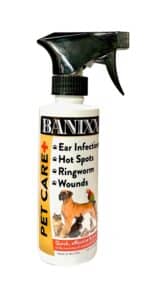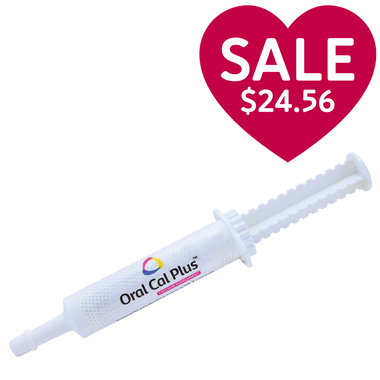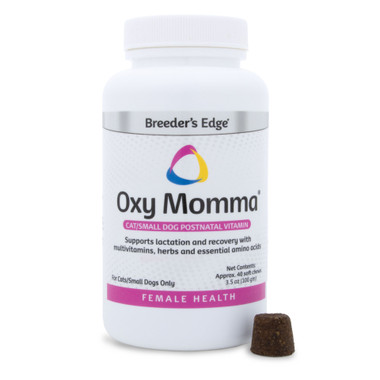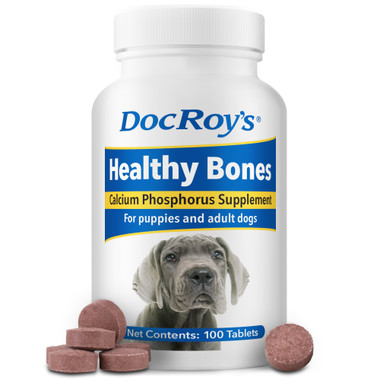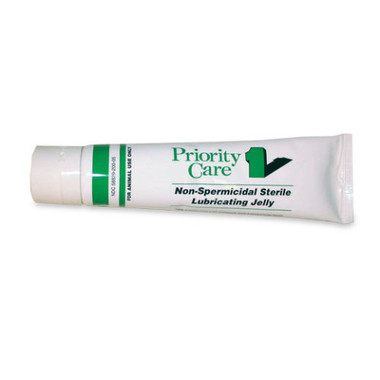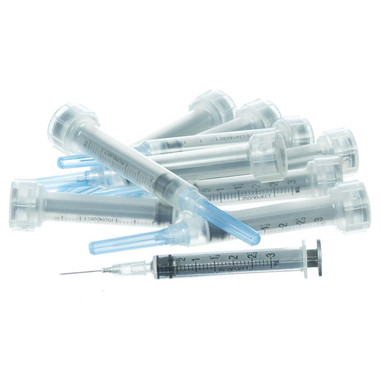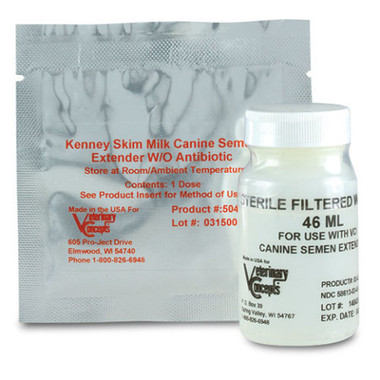Can dogs eat mushrooms?
Estimated 0 min read

Should dogs eat mushrooms?
Mushrooms are a delicious and versatile ingredient in many human dishes, but can our furry friends enjoy them too?
With so many different types of mushrooms out there, it’s natural to wonder if they’re safe for dogs to consume. While some mushrooms can be a tasty and nutritious treat for your pup, others can pose serious health risks.
In this comprehensive guide, we’ll explore the world of mushrooms from a canine perspective, helping you understand which varieties are dog-friendly and which ones to avoid. By the end, you’ll have the knowledge you need to make informed decisions about incorporating mushrooms into your dog’s diet.
Can dogs eat mushrooms?
Store-bought mushrooms like white button, cremini, portobello, shiitake, porcini, reishi, and maitake are generally safe for dogs to eat in moderation. While mushrooms offer potential health benefits for dogs, such as vitamins, minerals, and antioxidants, they should not replace a balanced diet. However, wild mushrooms can be highly toxic to dogs, and identifying edible varieties is difficult, so it’s best to avoid feeding them to pets. Symptoms of mushroom poisoning in dogs include gastrointestinal distress, neurological abnormalities, organ damage, and in severe cases, death. When feeding mushrooms to dogs, choose organic, clean them thoroughly, and serve plain. Introduce slowly and monitor for adverse reactions. Always consult with a veterinarian before making significant changes to your dog’s diet, especially if they have pre-existing health conditions.
Types of Mushrooms Dogs Can Eat
While not all mushrooms are safe for canine consumption, several store-bought varieties can be enjoyed by dogs in moderation.

Agaricus bisporus
White Button Mushrooms
White button mushrooms, also known as Agaricus bisporus, are the most common variety found in grocery stores. These mushrooms are safe for dogs to eat and can be served raw or cooked plain. White button mushrooms are low in calories and fat, making them a healthy treat option for dogs.
Cremini Mushrooms
Cremini mushrooms, also called baby bellas or brown mushrooms, are another variety of Agaricus bisporus. Like white button mushrooms, cremini mushrooms are safe for dogs to consume. They have a slightly firmer texture and a more robust flavor compared to white button mushrooms.
Portobello Mushrooms
Portobello mushrooms are the mature form of cremini mushrooms. These large, meaty mushrooms can be grilled, baked, or sautéed and given to dogs in small portions. Portobello mushrooms are rich in antioxidants, which may support a healthy immune system in dogs.

Amino acids are found in Shiitake Mushrooms
Shiitake Mushrooms
Shiitake mushrooms, native to East Asia, are known for their distinctive flavor and nutritional benefits. These mushrooms contain essential amino acids, minerals, and vitamins that can contribute to a dog’s overall health. Shiitake mushrooms should be cooked before feeding them to dogs, as raw shiitakes may cause digestive upset.
Porcini Mushrooms
Porcini mushrooms, also known as Boletus edulis, are prized for their nutty flavor and meaty texture. These mushrooms are safe for dogs to eat and can be served cooked or dried. Porcini mushrooms are a good source of dietary fiber, which can support digestive health in dogs.
Reishi Mushrooms
Reishi mushrooms, scientifically known as Ganoderma lucidum, have been used in traditional Chinese medicine for centuries. These mushrooms are believed to have immune-boosting properties and may help support overall health in dogs. Reishi mushrooms can be given to dogs in small amounts, either fresh or in supplement form.

Hen-of-the-woods
Maitake Mushrooms
Maitake mushrooms, also called hen-of-the-woods, are a type of edible fungus native to Japan and North America. These mushrooms are rich in antioxidants and polysaccharides, which may help support immune function in dogs. Maitake mushrooms should be cooked before feeding them to dogs to improve digestibility.
When introducing any new food, including mushrooms, to your dog’s diet, it’s essential to start with small amounts and monitor for any adverse reactions. While the aforementioned mushroom varieties are generally considered safe for dogs, it’s always best to consult with your veterinarian before making significant changes to your pet’s diet. This is particularly important if your dog has any pre-existing health conditions or allergies.
Health Benefits of Mushrooms for Dogs
While not an essential part of a dog’s diet, mushrooms offer several potential health benefits when consumed in moderation.

Mushrooms can benefit a dog’s diet
Vitamins B and D
Mushrooms are a good source of B vitamins, including riboflavin, niacin, and pantothenic acid. These vitamins play crucial roles in energy metabolism, nervous system function, and maintaining healthy skin and coat. Mushrooms also contain vitamin D, which is essential for calcium absorption and bone health in dogs.
Minerals and Antioxidants
Mushrooms provide a variety of minerals, such as potassium, selenium, and zinc, which support various bodily functions in dogs. Potassium helps regulate fluid balance and muscle function, while selenium and zinc contribute to a healthy immune system. Mushrooms are also rich in antioxidants, which help protect cells from damage caused by free radicals.
Low in Calories
Most mushroom varieties are low in calories, making them an excellent treat option for dogs watching their weight. Incorporating low-calorie treats like mushrooms can help prevent obesity and maintain a healthy body condition in dogs. However, it’s important to remember that treats should only make up a small portion of a dog’s daily caloric intake.
No Fat or Cholesterol
Mushrooms are naturally fat-free and cholesterol-free, which can be beneficial for dogs with certain health conditions. Low-fat diets may be recommended for dogs with pancreatitis, while low-cholesterol diets may be advised for dogs with heart disease. Incorporating mushrooms as a treat can provide variety without adding excess fat or cholesterol to a dog’s diet.
Very Little Sodium
Most mushroom varieties are naturally low in sodium, which is essential for dogs with heart or kidney issues. Excessive sodium intake can contribute to high blood pressure and fluid retention in dogs. By offering low-sodium treats like mushrooms, pet owners can help manage these health concerns while still providing their dogs with a tasty snack.
It’s important to note that while mushrooms offer several potential health benefits, they should not be relied upon as a primary source of nutrition for dogs. When introducing mushrooms or any new food to your dog’s diet, start with small amounts and monitor for any adverse reactions.

Dog sniffing around mushrooms
Are Mushrooms Toxic to Dogs?
The answer is that it depends on which mushrooms we’re talking about. While some store-bought mushrooms are safe for dogs, many wild mushroom species can be highly toxic and potentially life-threatening. One of the main concerns with wild mushrooms is the difficulty in distinguishing between edible and poisonous varieties. Even experienced mushroom foragers can make mistakes in identification, leading to accidental poisoning. For this reason, it’s best to avoid feeding any wild mushrooms to your dog, as the risks far outweigh any potential benefits.
Some wild mushroom species can be deadly to dogs even in small amounts. Toxins found in these mushrooms can cause severe damage to the liver, kidneys, and other vital organs. In some cases, ingesting just one or two mushrooms can lead to life-threatening complications or even death. The severity of the poisoning depends on the type of mushroom, the amount consumed, and the dog’s size and health status.
If you notice wild mushrooms growing in your yard, it’s crucial to remove them promptly to prevent your dog from accidentally ingesting them. Regularly inspect your property, especially after periods of heavy rainfall, as mushrooms can sprout quickly in moist conditions. If you’re unsure about the safety of a mushroom, err on the side of caution and remove it.
If you suspect your dog has eaten a wild mushroom, it’s essential to seek veterinary care immediately. Time is of the essence in cases of mushroom poisoning, as prompt treatment can greatly improve your dog’s prognosis. If possible, bring a sample of the mushroom your dog consumed to help your veterinarian identify the species and determine the appropriate course of treatment.

Watch out for poison symptoms
Symptoms of Mushroom Poisoning in Dogs
Recognizing the signs of mushroom poisoning in dogs is crucial for providing prompt and potentially life-saving treatment.
One of the most common symptoms of mushroom poisoning in dogs is gastrointestinal distress. This may include vomiting, diarrhea, and abdominal pain. These symptoms can occur within a few hours of ingestion and may be accompanied by a loss of appetite and lethargy. In some cases, the vomit or stool may contain pieces of the ingested mushroom.
Certain types of mushroom toxins can also affect the nervous system, leading to neurological abnormalities in dogs. These may include tremors, seizures, and loss of coordination or balance. Dogs may appear disoriented, confused, or have difficulty walking. In severe cases, mushroom poisoning can cause a coma or even lead to death.
Some mushroom species also contain toxins that specifically target the liver or kidneys, causing significant damage to these vital organs. Symptoms of liver toxicity may include jaundice (yellowing of the skin and mucous membranes), dark urine, and pale gums. Signs of kidney failure may include increased thirst and urination, followed by a decrease in urine output.
In rare cases, mushroom poisoning can even affect the respiratory system, causing difficulty breathing or respiratory failure. This may be accompanied by coughing, wheezing, or a bluish tint to the gums and tongue. Respiratory distress is a medical emergency and requires immediate veterinary attention.
Additionally, certain mushroom toxins can have effects on the cardiovascular system, leading to symptoms such as a slow or rapid heart rate, weak pulse, and collapse. These symptoms may be indicative of severe poisoning and warrant urgent veterinary care.
It’s important to note that the severity and onset of symptoms can vary depending on the type and amount of mushroom ingested, as well as the dog’s size and overall health. Some mushroom toxins may cause delayed symptoms, while others can lead to rapid deterioration.

Dog owner cleaning mushrooms
How to Feed Mushrooms to Your Dog
If you’ve determined that your dog can safely enjoy mushrooms, it’s important to introduce them to their diet properly. When selecting mushrooms for your dog, always opt for store-bought varieties, preferably organic, to ensure they are free from harmful pesticides and other contaminants. Avoid feeding your dog wild mushrooms, as they can be toxic and potentially life-threatening.
Before feeding mushrooms to your dog, thoroughly clean them to remove any dirt or debris. You can serve mushrooms to your dog either raw or cooked, depending on their preference and digestive tolerance. If cooking mushrooms, use minimal amounts of olive oil and avoid adding any seasonings, such as salt, garlic, or onions, which can be harmful to dogs.
Portion Control
When introducing mushrooms to your dog’s diet, start with a small amount to gauge their reaction. Some dogs may have sensitivities or allergies to mushrooms, so it’s essential to monitor them closely for any adverse symptoms, such as vomiting, diarrhea, or itching. If your dog tolerates mushrooms well, you can gradually increase the amount, but remember to keep it as a small treat rather than a substantial part of their diet.
To make mushrooms more appealing to your dog, you can chop them into small, bite-sized pieces or mix them with their regular food. This can help encourage picky eaters to try the new ingredient and make it easier for them to digest. However, be prepared for the possibility that some dogs may not find mushrooms palatable and may refuse to eat them altogether.

Mushroom found on dog walk
It’s crucial to remember that mushrooms should be treated as a supplementary food item and not a replacement for a balanced, species-appropriate diet. While mushrooms offer some nutritional benefits, they should not make up a significant portion of your dog’s daily caloric intake. As a general rule, treats should comprise no more than 10% of a dog’s total daily calories to prevent nutrient imbalances and maintain a healthy weight.
If you have any concerns about introducing mushrooms or other new foods into your dog’s diet, consult with your veterinarian. They can provide personalized advice based on your dog’s individual health needs, age, breed, and any pre-existing medical conditions. Your veterinarian can also help you determine the appropriate serving size and frequency of mushroom treats for your dog.
In addition to consulting with your veterinarian, it’s important to educate yourself about the potential risks and benefits of feeding mushrooms to your dog. Stay informed about the latest research and recommendations from reputable sources, such as veterinary organizations and pet nutrition experts. By staying well-informed and working closely with your veterinarian, you can make informed decisions about your dog’s diet and help them thrive.
Banixx for Dog Lovers
At Banixx, we’re committed to being your go-to resource for expert advice on canine nutrition, health, and wellness. From informative articles like this one to our line of pet care solutions, we’re here to help you navigate the joys and challenges of pet parenthood.
If you ever wondered about other cat and dog matters such asHow long can my do go without peeing? Orhow to remove a tick? Well as you can see, we’ve got that covered too!
Stay tuned for more tips and insights on how to keep your beloved dog happy, healthy, and living their best life. Together, we can ensure that our furry friends enjoy many years of tail-wagging adventures by our side.
Sources



